Fuente: Carl-Viggo Hølmebakk
Fotografía: Carl-Viggo Hølmebakk
The mortuary is an addition to Asker crematorium and chapel, built in the late nineteen fifties*. The program is a coffin receiving room (ceremony room), a room for preparation of the corpse, and an outdoor court. The small entrance area connecting the mortuary to the old building, serves as a place to hand over the urn after the cremation. A specific demand was to keep possible further additions on the north side of the mortuary.
The corpse is brought to the entrance by car and carried into the receiving room by the relatives. There is a silent ceremony, usually with the coffin open, where the relatives spend the last moments with the deceased. The outdoor court is a room for reflection, and to wait for the family members who remain inside. A sliding door facing the parking area allows the main door to stay open during the ceremony. The court has a view towards the graveyard. The preparation room is normally used by the undertaker, but also by families who want to take part in the preparation of the dead body.
The white clay brick measures 85 x 85 x 285 mm. All walls are load-bearing masonry. The ceremony room has a brick vault, while the other rooms have horizontal concrete slabs. The slabs resist the pressure forces from the vault, statically replacing tension rods in the ceremony room. Interior brick surfaces exposed to water are glazed clear, which give the brick a greyish uneven colour, caused by salts in the clay. Floors are ground concrete. Doors and windows are pine wood, treated with a glossy oil. Fittings for lighting and candles are sandblasted stainless steel. The tree in the court is a wild cherry tree, and will eventually create a roof of branches. The steel sculptures in the ceremony room and court are by the artist Per Inge Bjørlo.
One aspect of the project intrigued me throughout the design process: Even though the mortuary is religiously neutral, many features of the building quite soon presented themselves as metaphors. The proportions of the rooms, the geometry, the light, the fixtures and even the small stones in the concrete floors seemed to attract symbolic meaning. I am still not sure whether this aspect is actually present in the building, or just brought to the surface of my mind by the program alone.
Link al proyecto completo en Carl-Viggo Hølmebakk
Otros proyectos en HIC> de Carl-Viggo Hølmebakk
Architect:
Carl-Viggo Hølmebakk
Structural consultant:
Siv.ing. Terje Orlien
Sculptures:
Per Inge Bjørlo
Contractors:
Asker entreprenør
Construction period:
1999 – 2000
Esta entrada aparece primero en HIC Arquitectura http://hicarquitectura.com/2018/08/carl-viggo-holmebakk-mortuary-at-asker-crematorium/
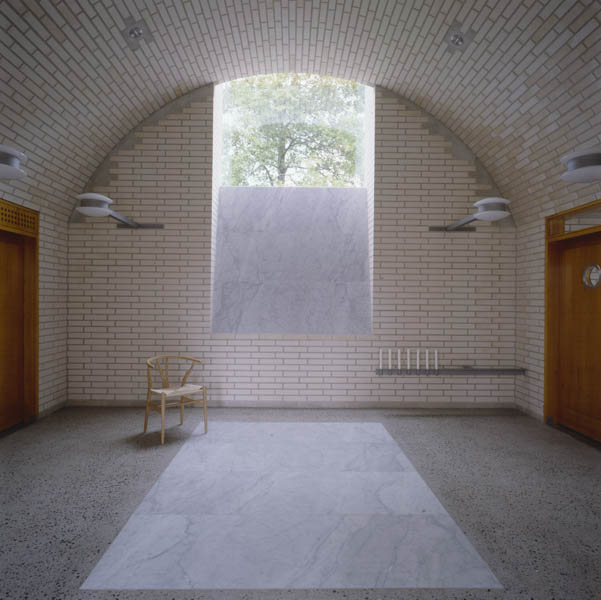
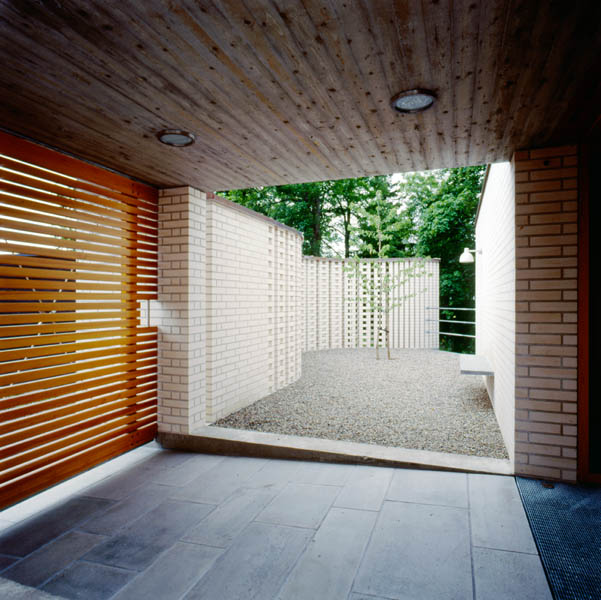
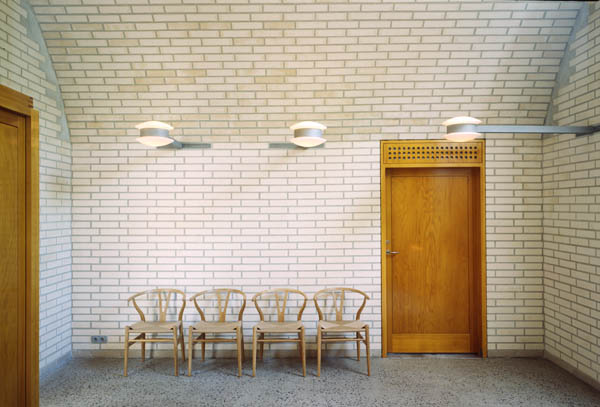

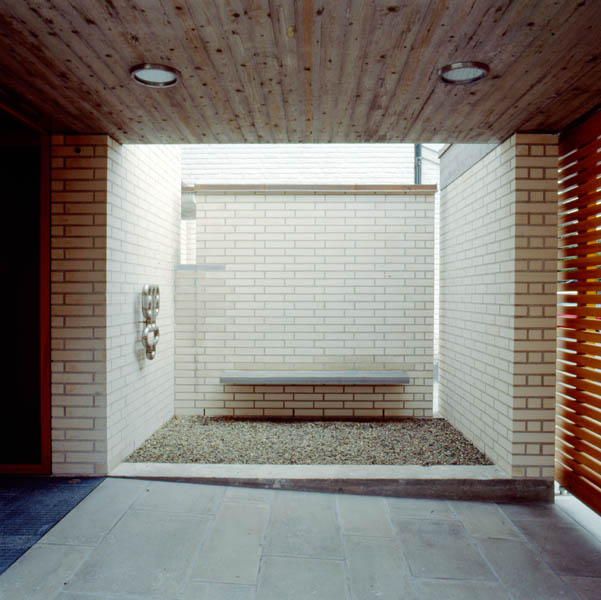


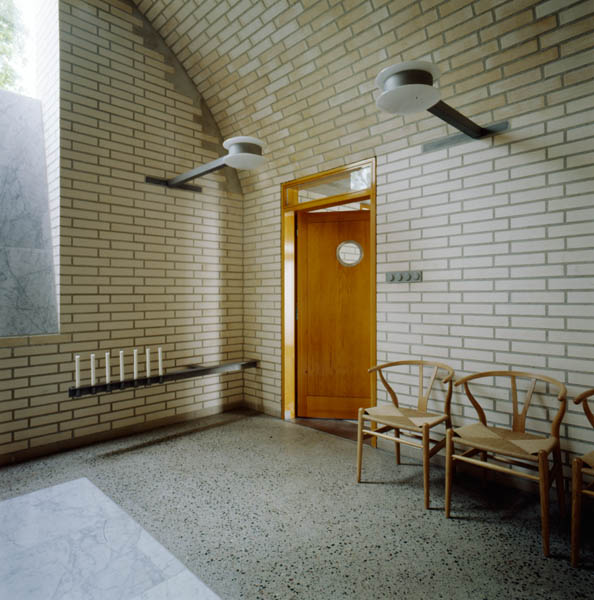

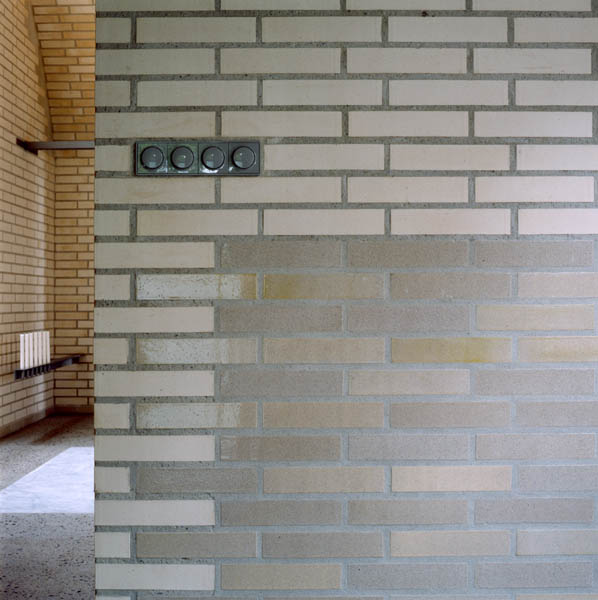
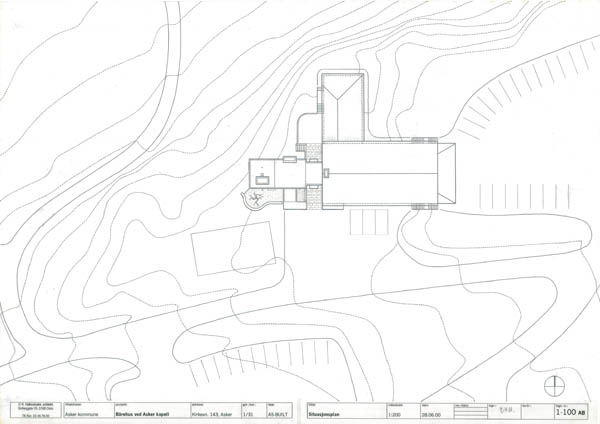
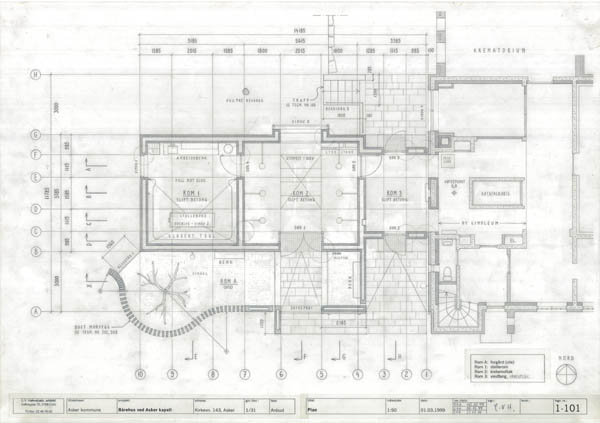
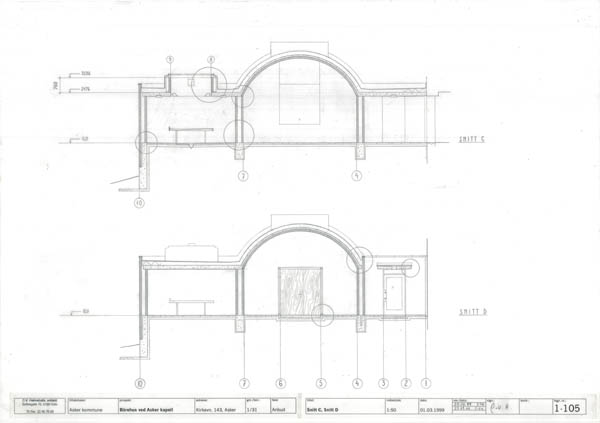
No hay comentarios:
Publicar un comentario